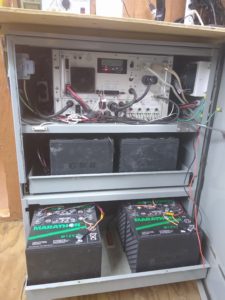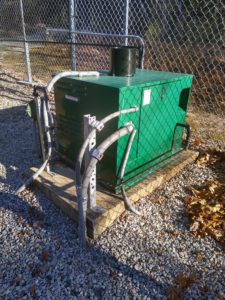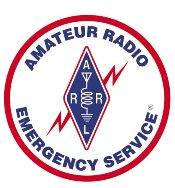Table of NHARES Net Listing MWV-ARES
(click table below to enlarge)

___________________________
Mary Schillereff W1ENH is the Emergency Coordinator for the Mt. Washington Valley ARES. schillereffmp@gmail.com
Asst. Emergency Coordinators: Larry Claveau N1XUX, Greg Fitch KB1EZJ, Linda Burnes KC1LAL, Jonathan Wixson KB1COL, Frank Hammond W1WU
Dear ARES Members,
As the Emergency Coordinator for the ARRL White Mountains Amateur Radio Emergency Service (ARES) Group, it’s my privilege to introduce myself and outline our strategy for weekly on-air nets.
These nets are pivotal in achieving our objectives: enhancing emergency communication skills, strengthening our community, and ensuring preparedness for any situation.
As a retired educator I believe strongly in preparation, training, and adaptability as essential ingredients for growth and success. My involvement with various and regional community service entities has provided exceptional opportunities to meet and work with mission oriented folks keen to achieve common goals. These values I take very seriously and have everything to do with accepting the appointment. Nothing great is accomplished alone.
Mary Schillereff W1ENH
_____________________
Weekly Net Overview:
– Day and Time : Mondays at 7:00 PM.
– Repeater Rotation : To ensure coverage of both Northern and Southern Carroll County, we will alternate weekly between the W1BST/Ossipee (147.030 MHz, Positive Offset, PL: 88.5) and W1MWV/N. Conway (145.450 MHz, Negative Offset, PL: 100.0) repeaters. These are assigned tactical designations MWV OPS-1 and MWV OPS-2 respectively.
– Echolink will also be available for each net – Echolink:
W1BST-R Node 875273
– Periodic use of other repeater groups will be included in this plan to expand our operational readiness-details to follow
– Simplex Operations : In addition to repeater use, we will periodically engage in simplex operations on 147.495 MHz or on the repeater output frequencies, practicing both with and without relay setups. This is critical for honing our skills in direct communication scenarios, which are vital during actual emergency conditions where repeater infrastructure may be compromised.
Please keep in mind during this transition period flexibility is expedient for cohesion and consistency: Semper Gumby !
As always, thanks to the Lakes Region Repeater Association, White Mountains Amateur Radio Club, and the Mt. Washington Observatory Amateur Radio Club, and their repeater trustees, for the continued use of their repeaters, as well as our neighbors within NH ARES. We are all trying to achieve the same mission, we need to do it together.
Monthly Schedule & Weekly Reminders:
The net schedule will be shared at the start of each month, detailing the repeater or simplex frequency for each session. Reminders will be sent every Sunday to keep all members informed and prepared for the upcoming net.
Net Control Station (NCS) Volunteers Needed:
Running an effective net requires dedicated Net Control Stations. We are seeking volunteers to manage the nets on a rotational basis. Volunteering as NCS is a valuable way to serve our group and enhance your leadership and communication skills. Training and support will be provided for all volunteers.
Why Your Participation Matters:
– Skill Enhancement : Regular participation in nets sharpens your communication skills, especially in emergency scenarios.
– Community Building : Engaging with fellow operators strengthens our network, fostering a resilient and supportive community.
– Preparedness : Through practice, we ensure our readiness to respond effectively to emergencies.
Feedback and Suggestions Welcome:
Your input is crucial for the success of our nets. Please share any ideas for net topics, drills, or feedback on how we can improve our sessions.
Thank you for your commitment to our ARES group and the wider amateur radio community. Your efforts make a significant difference in our collective preparedness and ability to respond to the served agencies in Carroll County. ed.
If you’re interested in volunteering as NCS or have suggestions for our nets, please reply to this email. Your engagement and leadership are greatly appreciated. I value the respective experience, radio finesse, and integrity of each and every Ham.
73,
Mary/W1ENH
Emergency Coordinator
ARRL White Mountains ARES Group
______________________________
For more info on our local ARES group, go to https://www.facebook.com/NewHampshireARES/. This FB page is managed by Raul “Skip” Camejo AC1LC who is the Public Information Coordinator for ARRL/NH and Public information officer for NH-ARES.
____________________
What is ARES?
ARRL’s Amateur Radio Emergency Service is the largest nationwide ham radio emcomm organization, organized by individual ARRL sections that may be as large as a state or as small as a few counties, depending on population.
ARES consists of a dedicated group of amateur radio enthusiast who believe that service to their community is a important part of holding a Federal Communications Commission (FCC) Amateur Radio Service license.
The Amateur Radio Emergency Service® consists of licensed amateurs who have voluntarily registered their qualifications and equipment, with their local ARES leadership, for communications duty in the public service when disaster strikes.
What is the Job of ARES?
Provides amateur radio emergency services to our client agencies, as one team, trained, experienced and prepared to serve during a communications emergency. ARES is activated before, during and after an emergency. Generally, they handle all emergency messages, including those between government emergency management officials.
ARES works primarily with local public safety groups and nongovernmental agencies, such as local fire departments and the American Red Cross.
How To Join
To volunteer, register with your local ARRL Emergency Coordinator. You can register as an ARES volunteer simply by filling out the form and mailing it to the ARRL. You also need to join a local ARES team to participate in training and exercises. The easiest way to find out about this organization in your area is to contact your ARRL section manager.
Lakes Region Repeater Association
LRRA maintains the (primary) 147.03 repeater positive offset 88.5 PL with a 12 kW emergency propane generator (about 5 days of fuel) and a sizable 288 amp-hour battery bank at our repeater site on Bennett Hill. If commercial power failure happens, the controller un-links the UHF and 6 meter repeaters and the amplifier powers down providing 20 watts of transmit output and notification on the ID tail including current battery voltage. This is the primary ARES repeater and is also available for adjoining Amateur Radio Emergency Service groups as a backup for their emergency communication needs in the event of a commercial power failure. We can also provide crossover communications with adjoining ARES groups.



